CREATE project team visited CYCLO Textile Waste Recycling Factory
After visiting the TEAM Group factory in Savar in the morning on 8th August 2023, CREATE Project team visited the CYCLO Factory located in Valuka, Mymensingh on the same date. CYCLO is a world-class recycling plant started its journey in 2009 by a Bangladeshi origin American businessman Mr. Mustafain Munir, Founder and Director of CYCLO. He dreamt to use the circular economy concept to revolutionize the sustainability transition in Bangladesh. He also noted how the local mafia who collected the garments wastage from the factory with his power challenged the wastage collection for the company in the early years. Now the things are different.
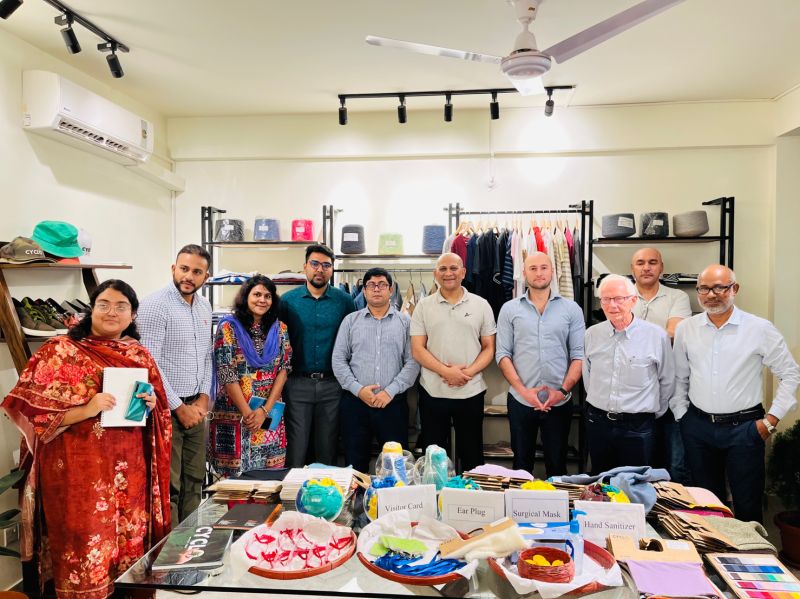
It has subsidiaries across South Asia and EU. It recycles pre-consumer textile wastes from the suppliers of the global brands such as H&M, Bestseller, Next, US Polo, Zara, LIDL, KOHL’S, Celio, Kiabi etc. CYCLO has very strong business network with the leading brands across the globe. Thus they convince the brands to collect the garments waste from their orders from the manufacturers’ factories in Bangladesh, recycle them, make the yarn and send them back to the manufacturers to produce the garments for the brands with those recycled yarn. This is the brands that push the suppliers to sell the pre-consumed wastage to Cyclo for recycling.
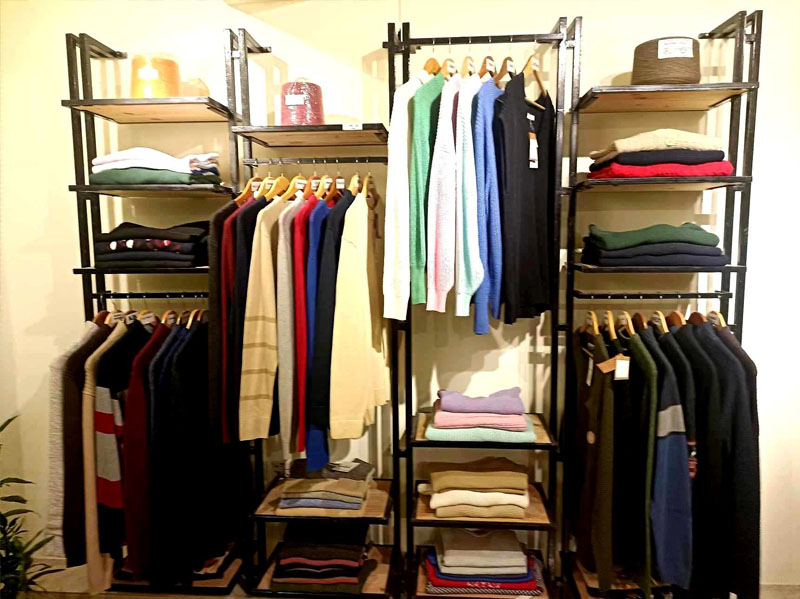
However, The visit was led by the CREATE project leader, Dr. Mohammad B. Rana, Associate Professor at Aalborg University Business School (AAUBS), Denmark, together with Emeritus Professor Olav Jull Sørensen at AAUBS and a senior Research Fellow at Access2Innovation, DK, Prof. Dr. Imranul Hoque (AUST and JnU), Mr. Abul Kalam Azad, Research Associate at CREATE, Sarah Mirza, Research Assistant at CREATE, PhD Students at Aalborg University Mr. Syed Ahmed Tajuddin, Mr. Hasan Imam, and the future PhD student Asma Khatoon.
The company’s General Manager Operation, Mr. Umer Khan gave the CREATE team a tour to the recycling units followed by a discussion and a short presentation by the founder. He showed and explained that the company does not want to throw away anything; instead recycle or reuse them. Using mechanical technology, they recycle used textiles in particular the waste from the apparel production from Bangladeshi garment factories and make new fibers and yarns without needing water, chemicals, or colors. They store the recycled fibers separately for different brands since they collect the wastage from factory of their suppliers.
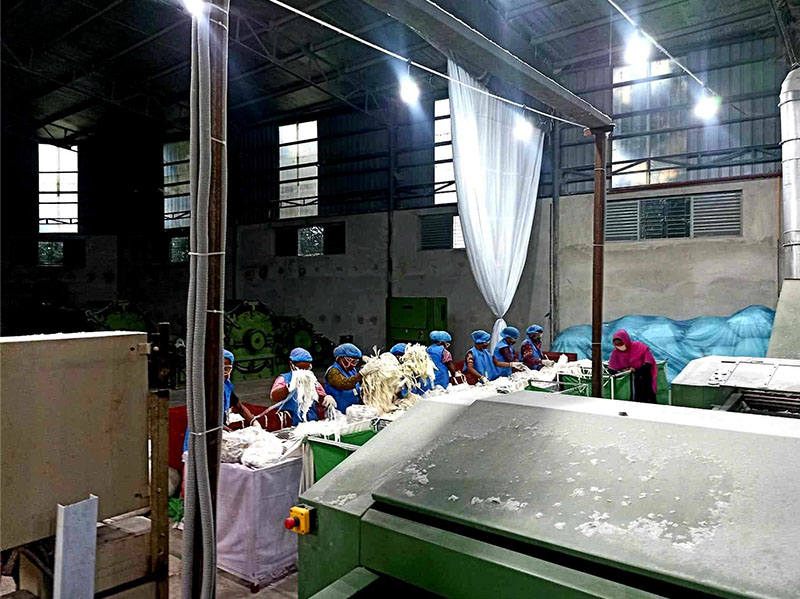
The collected Jhoot is sorted manually though the first sorting used to be done in the suppliers factory. The facilities are designed with different recycling lines based on different colors for example light color (white; off-white), black color and one for other different colors.
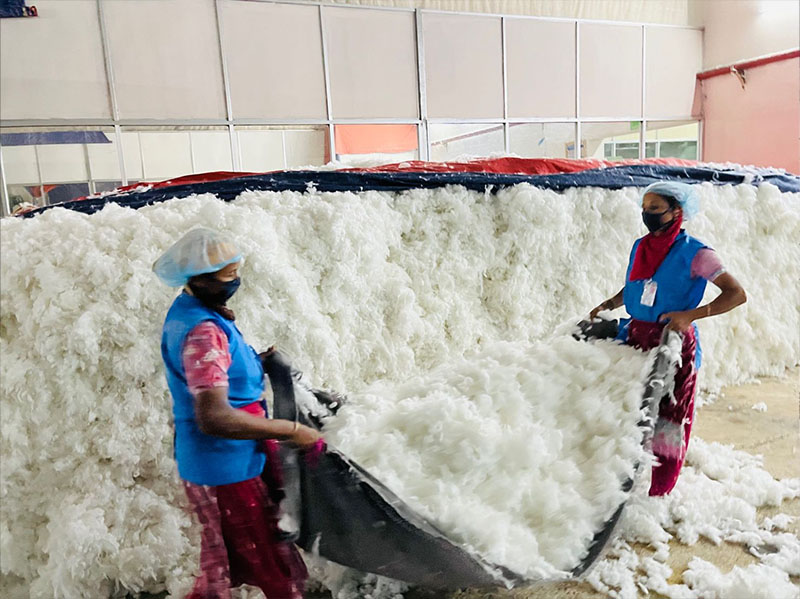
1 kg of yarn made of 70% CYCLO® Recycled Cotton and 30% Recycled Polyester can reduce CO2 emissions by up to 7.5 kg (96.3%), water consumption by 2,626 liters (99.8%), and land use by 6.82 m2 (99.7%).
CYCLO do co-branding with International Fashion Brands to Create Fibers with a Measurable Environmental Impact with at Least 50% Recycled Content.
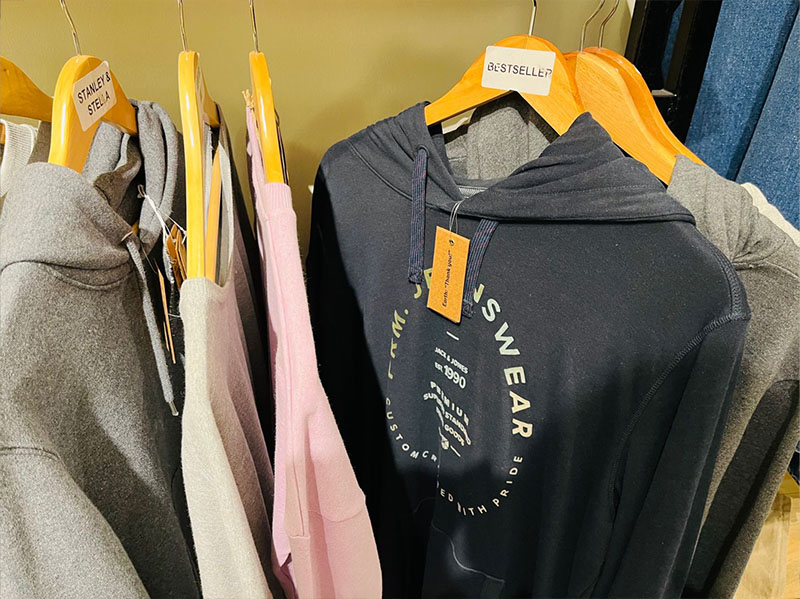
CYCLO does not barely focus on recycling rather they bring the technology to produce a high-quality, commercially applicable yarn that is internationally recognized and which has been the ultimate challenge for the recycled yarn. However, their recycled fibers are the member of the Sustainable Apparel Coalition (SAC) and HIGG index. The management has a vision to bring the chemical recycling to intensify the impact of circularity.
‘Textile and apparel’ is one of the few industries that consumes extensive resources and pollutes our environment and Cyclo thinks there is a better way to operate in the apparel industry to reduce the adverse impact. It was wonderful to see for the CREATE team how a Bangladeshi origin fiber-recycling factory, using pre-consumer textile waste, can support the apparel industry in green transition despite several challenges from the institutions and ecosystem. This visit helps to realize the obstacles and challenges that apparel industry encounters in making circularity transition and how the leadership can overcome and succeed with technological adaptation and networking.